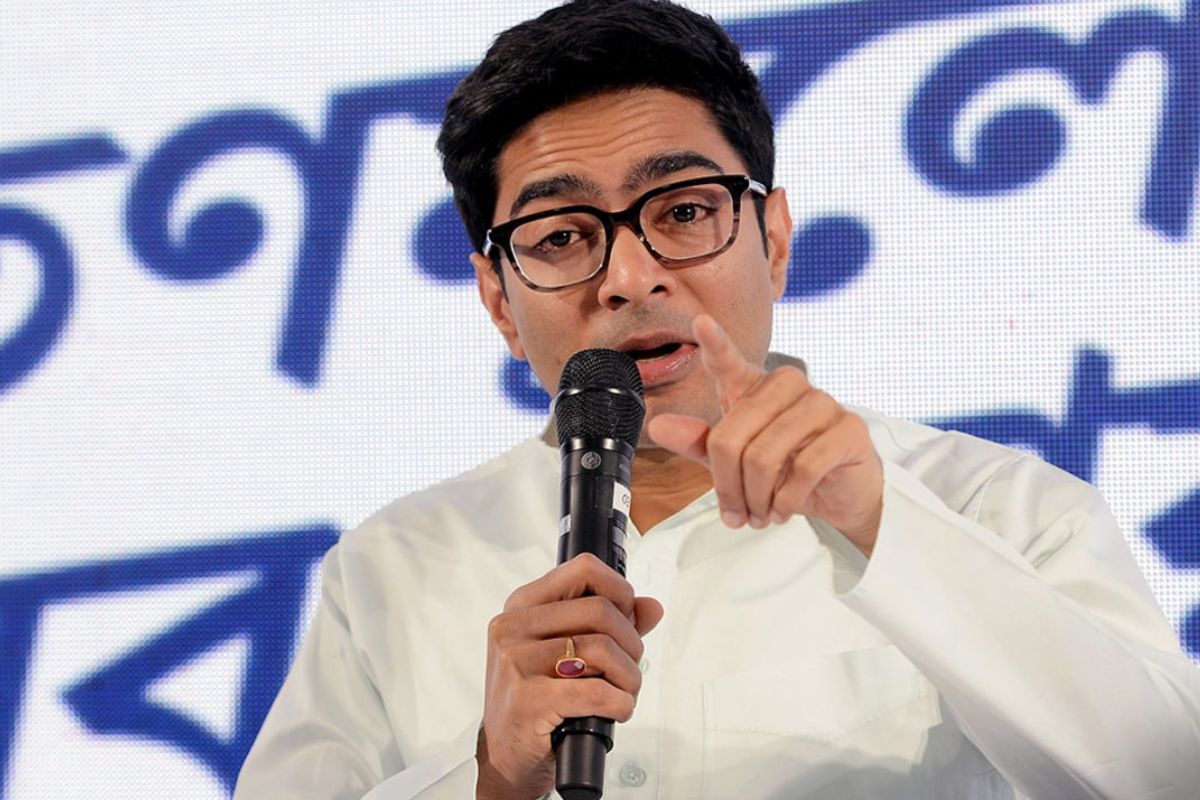Abhishek’s wanted capital punishment
Since Day 1 of this incident in August 2024 in Amtala, Abhishek Banerjee, national general secretary of Trinamul Congress had been vocal that rapists have no place in society.
Abhishek Banerjee asserted his commitment by boldly stating that he would step down from politics if the BJP-led Centre could furnish concrete evidence of releasing the due funds to the state.

All India Trinamool Congress (AITC) General Secretary Abhishek Banerjee (file photo)
Addressing a rally held in Belda Stadium, West Midnapore, Trinamul’s national general secretary Abhishek Banerjee, today, threw the gauntlet to the central government, particularly targeting Prime Minister Narendra Modi.
The challenge came in the form of a demand for a white paper detailing the funds disbursed under key schemes, namely the Mahatma Gandhi National Rural Employment Guarantee Act (MGNREGA) and the Pradhan Mantri Awas Yojana (Awas Yojana), in West Bengal.
Advertisement
Speaking before a crowd at Belda Stadium, Mr Banerjee asserted his commitment by boldly stating that he would step down from politics if the BJP-led Centre could furnish concrete evidence of releasing the due funds to the state. He lambasted the Modi government, accusing it of propagating falsehoods and failing to deliver on promises made to the people.
Advertisement
Mr Banerjee’s address was punctuated by the screening of a five-minute video on a giant screen, which he utilized to highlight what he described as the Prime Minister’s unfulfilled assurances. He emphasized the importance of maternal power and reminisced about his past efforts to connect with constituents, particularly in the undivided Midnapore region during Naba jowar. He hailed the resilience of the people of Midnapore, recalling their historic struggles against the CPM and their sacrifices for the cause of progress.
Addressing the crowd, Mr Banerjee recounted his own commitment to the people, narrating his relentless pursuit of justice during protests for the release of funds for 100 days’ work, under the MGNREGA. He juxtaposed his dedication with what he perceived as the lackluster performance of sitting MP and BJP leader Dilip Ghosh.
Taking direct aim at Mr Ghosh, Mr Banerjee criticized his alleged failure to organize developmental meetings in the seven Assembly constituencies under the Midnapore Lok Sabha area during his tenure. He contrasted this with the track record of chief minister Mamata Banerjee, whom he praised for keeping her promises to the people.
Mr Banerjee did not mince words when discussing Ghosh’s activities, describing his routine of morning walks and tea as insufficient for effective leadership. He questioned Ghosh’s commitment to public service, suggesting that a more proactive and engaged representative, such as June Maliya, would better serve the interests of the people.
Advertisement